A Friendly Reminder To Look After Your Brain
Meet the non-profit leading the conversation around TBIs in action sports.
Over the past decade science around brain health and traumatic brain injuries (TBIs) has exploded.
Ten years ago, the common advice when someone had a concussion was to “lay in a dark room until you feel better.” Today we know that is not only incorrect, but can actually be harmful.
This explosion in knowledge around how our brains work has coincided with more and more people dealing with brain injuries. This comes as no surprise; the further we push the limits, the more we’re putting our bodies on the line. In surfing, just over the past few years, we’ve seen TBIs affect so many athletes – Owen Wright, Albee Layer, Derek Dunfee, Courtney Conlogue, the list goes on. It’s not just the NFL. TBIs are becoming commonplace in sports across the board, from surfing to snowboarding, skating, soccer, ice hockey… you get the picture.
So when competitive snowboarder Kelsey Boyer woke up from emergency brain surgery one day, with no support or information on brain rehabilitation, she decided it was time for a change.
A year-and-a-half ago she launched Save A Brain, a non-profit whose mission is to provide education, encourage prevention and spread awareness of the long term mental and physical effects of traumatic brain injuries (TBI) and concussions. March is Brain Injury Awareness Month, and Save A Brain will be regularly sharing tips and giveaways on their social media. Follow along here, and catch up with Kelsey about all things TBI below.
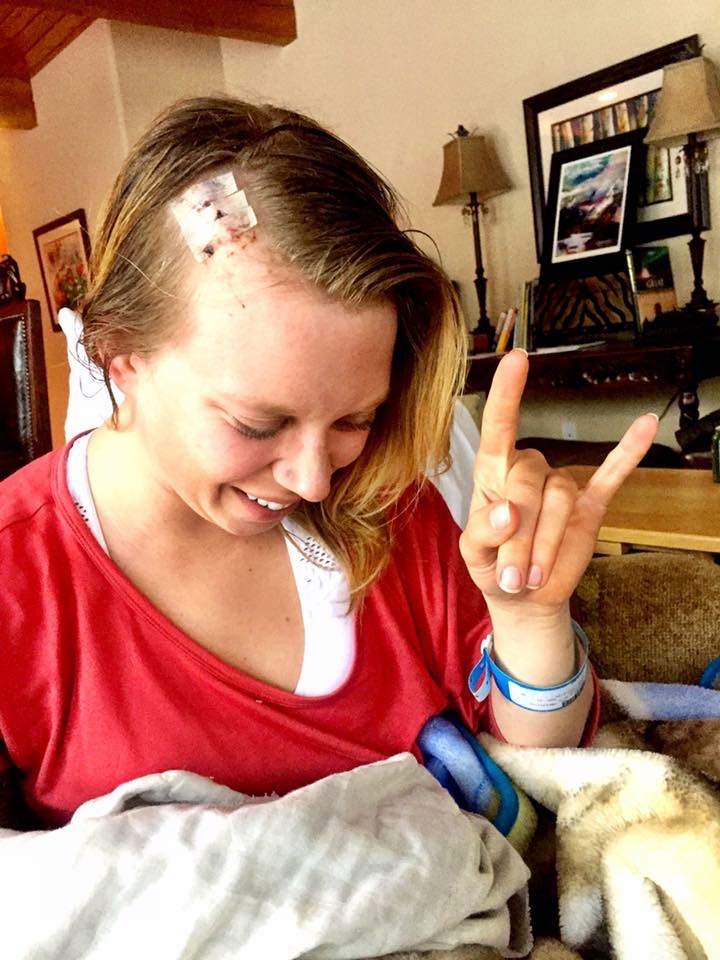
Tell us how Save A Brain came to be.
I used to be a competitive snowboarder for slopestyle, then in one season I had about seven concussions in two months. It was really bad. I had a big crash and I wasn’t feeling great, but I kept snowboarding until my friends literally walked me to the ER. The doctor gave me a CT but said that I looked fine. About five minutes later she came out and told me that my brain had shifted 11mm and I was lucky to be alive. The next thing I knew I was in an ambulance headed for emergency brain surgery. I had gone two weeks with my brain bleeding and I didn’t even know it.
When I woke up I had to pass walking and talking cognitive tests, then they sent me on my way and told me to come back in three weeks to get the staples out of my head. I didn’t really think about it but months down the road I was having really gnarly mood swings — like crying episodes for two hours. I would see red with anger and I’m not an angry person. It would hurt to move my eyes a lot. I went like that for three years not knowing what to do. The doctors told me I was fine and I had no information or direction. In the end I went to a treatment center which is basically a week-long brain boot camp, and it really helped a lot of my issues.
I started speaking up on my social media about my experience and strangers started reaching out to me. I thought damn, so many people are going through this and don’t have anybody giving them information or direction. So I started an Instagram account called Save A Brain. That was all it was meant to be, but it gained traction and I realized that I could do more with it. At first I was going to start Save A Brain LLC (for profit) but the more I thought, the more that didn’t feel right. Eventually I said screw it, and I ended up starting Save A Brain non-profit.
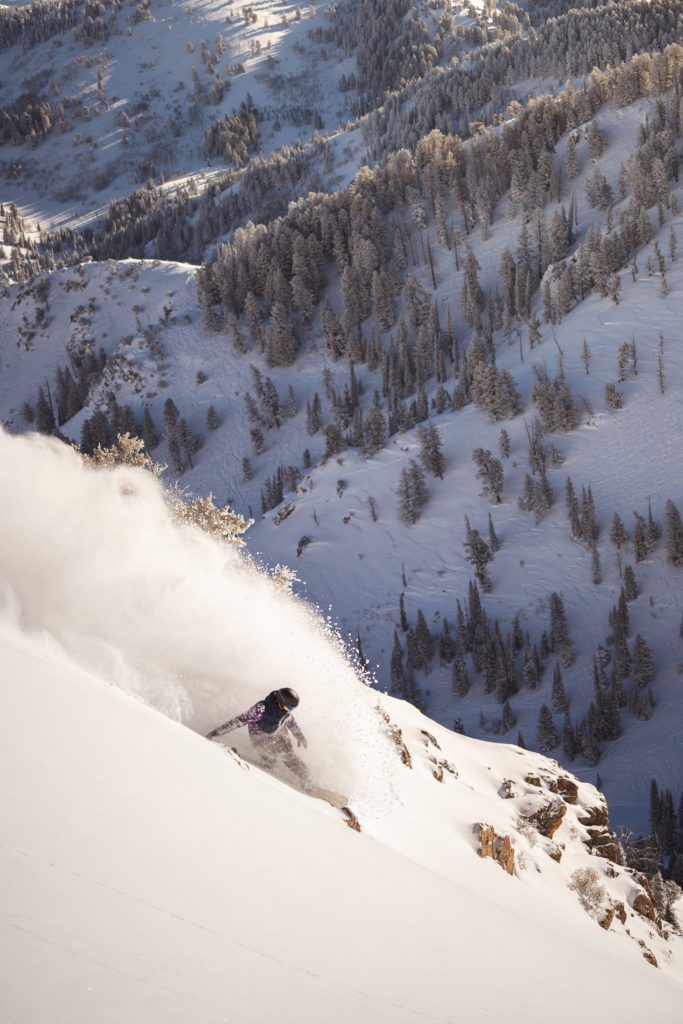
Since you’ve launched, what are some of your achievements?
We started the Happy Helmets program, where we partner with a brand and donate helmets to local schools each month. We also created a concussion guide, which is an easy-to-understand pamphlet for 8y/o+, outlining what concussions are and what to look for. We sold a concussion cookbook for brain health, and are about to do a second round of printing. We’ve also started so many conversations within the snowboard world. I’m excited that we’ve been able to achieve all of that in 1.5 years and during a global pandemic. It shows what a need there is for something like this.
Action sports are funny — I’ve been in the snow industry my whole life and it’s so crazy how we take avalanche safety so much more seriously than we take head injury safety. We get our knowledge in an avalanche safety course, we buy our beacon, shovel, probe, we get the forecast, and then we go out for the day. Yet most people don’t know about butt-guards, mouthguards and helmets. We don’t know about the brain and most people don’t know what to look out for in concussions. The facts are out there – TBIs hit way more often than avalanches, and just as hard. But society hasn’t wrapped our head around it.
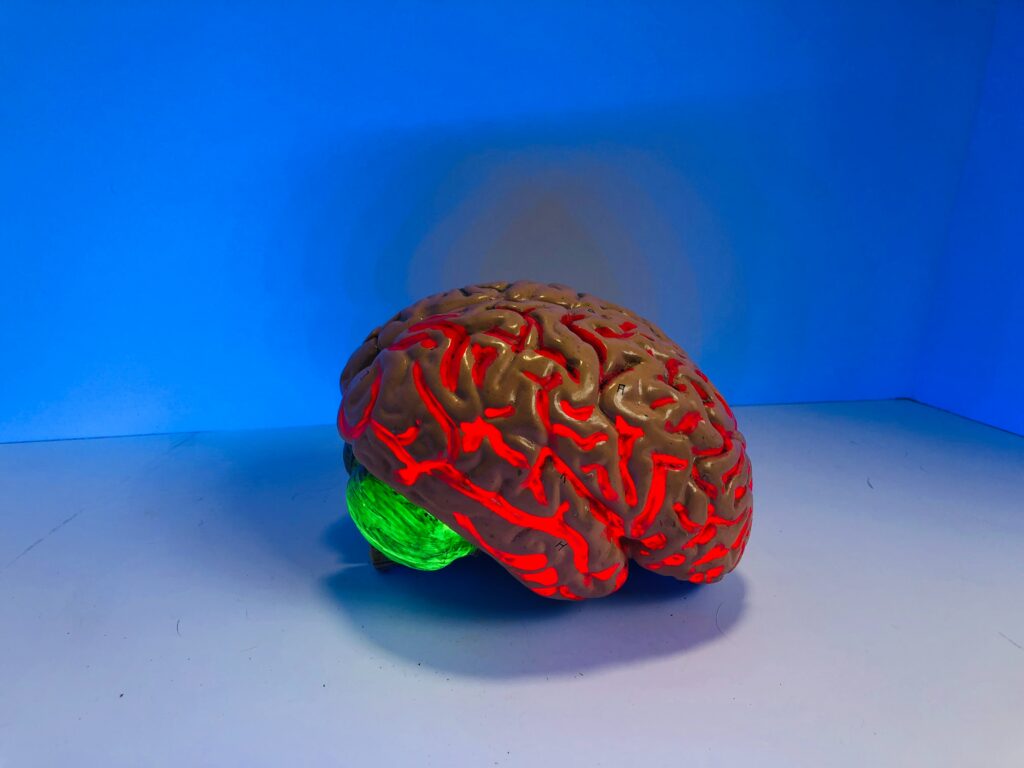
Has it been hard to get people talking openly about TBIs?
I always say it’s the black sheep in the room – nobody wants to talk about it. But it doesn’t have to be this thing that we’re terrified of. You can prevent TBIs, and you can know what you need to do to take care of your brain and have good brain health. All of it is so correlated and interlinked, even with mental health. We all talk about mental health but we’re not willing to talk about what could be the main root cause of it… head injuries.
We’ve actually created something we call the Save A Brain Safe Space, to help facilitate conversation for people going through the recovery process – or even people who just have questions about TBIs. It’s an online forum on our website that offers a safe space for individuals to come to when they need a shoulder to lean on. The road to recovery is so dark and lonely and at Save A Brain we want everyone to know that you don’t have to do it alone.
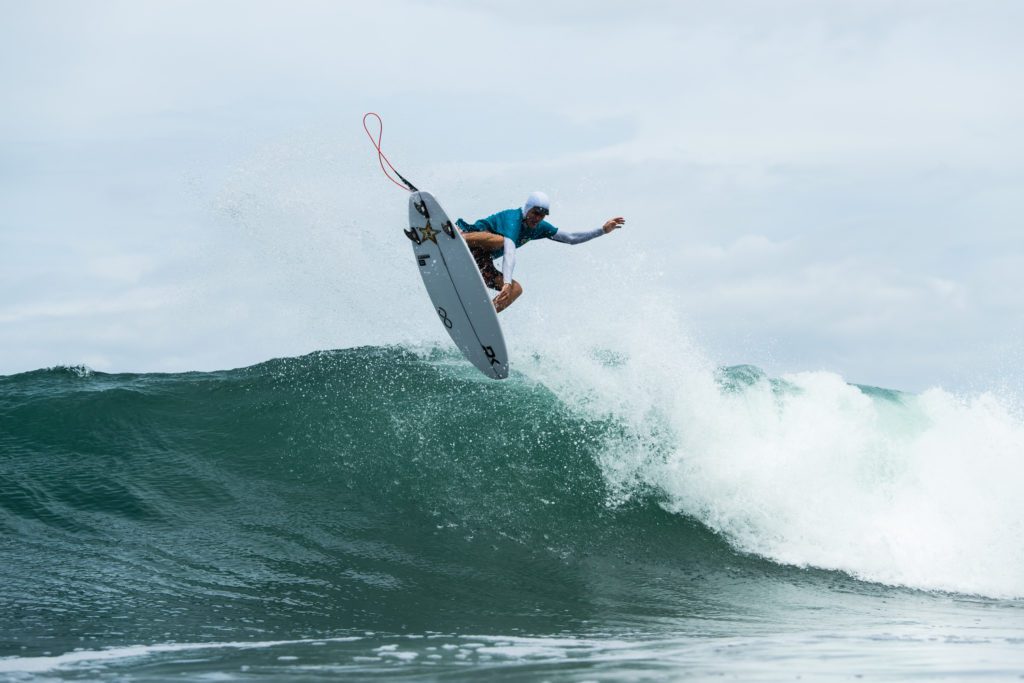
And what about Save A Brain’s connection to surfing?
We have Albee Layer on our ambassador team and he’s amazing, he’s been opening my eyes to head injuries in surfing. It’s been so cool to see surfing starting to have the conversations that we all need to be having.
At Save A Brain we really want to become visible across all action sports, and that includes surfing. We want to create that space for people to have questions, to talk about TBIs and not be intimidated. Our biggest goal is to keep expanding, and our long term goal is to open up a treatment facility where the funds raised would pay for people to come get the help they need. But that’s so long term. What we can do now, what’s right in front of us, is to educate and create awareness.
What’s the difference between what you guys are doing and what other non-profits in this space are doing?
I thought about this a lot before I started Save A Brain. Within action sports there is the High Fives Foundation, and they help people with spinal cord injuries or TBIs get back to doing the sport they love. Then there’s Love Your Brain, which Kevin Pearce started, and they believe in the power of yoga to help people on their recovery journey. I studied both of those foundations and realized that they’re doing an amazing job, but there is a big gap – the centerpiece of awareness and education. We strive to fill that space, to educate people so that they don’t have to get to the point of having to go to a treatment facility. It never has to get as far as you think.
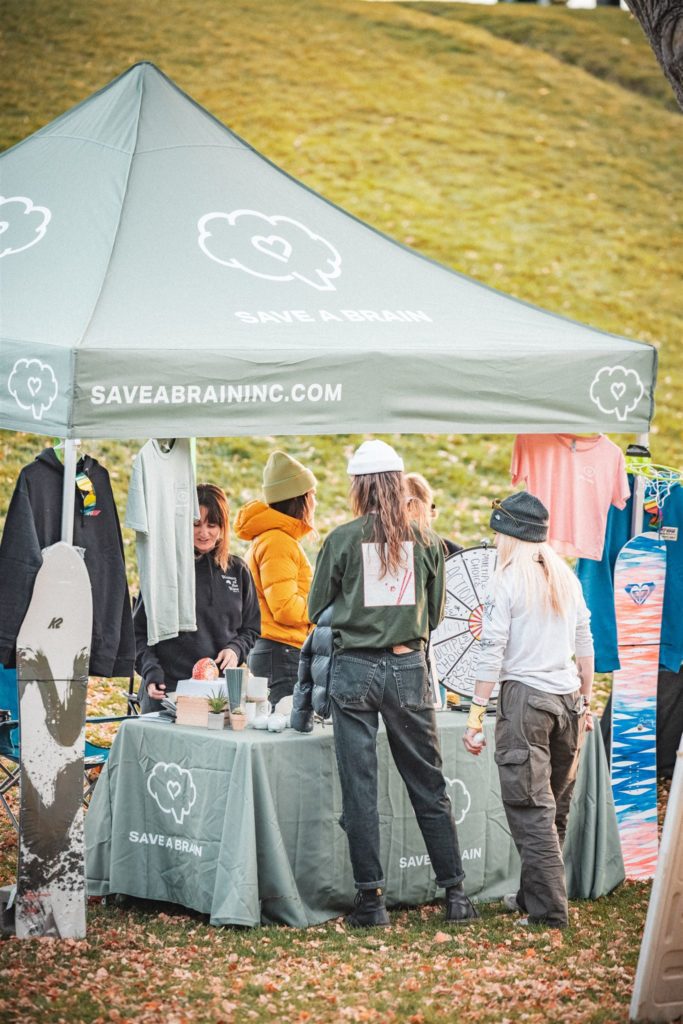
What’s next for Save A Brain?
We’ve got a lot coming up. We’re doing helmet certification at Dew Tour in the USA this year, and are looking to expand that program to other events across multiple sports. We’ve partnered with Woodward and they’re bringing us in to hold info sessions for the kids – and we can be a source they trust, that they can relate to. We’re not just another white coat. We also have an exciting new brand partnership with Roxy, and we’re looking to grow in this space.
We want to be the Boarding for Breast Cancer, or the Protect Our Winters, of the traumatic brain injury space. We’ve been around for less than two years and we have so much room to grow. The work will never be done, and we’ll continue to find new avenues to fight for change.
Like, why are people in the Olympics still not wearing helmets? Why are all helmets not getting checked for certification in competitions? One day people will realize that we literally only do get one brain. We have two knees and they can kind of fix those, but not the brain. It’s a one-shot deal.


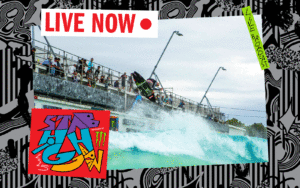
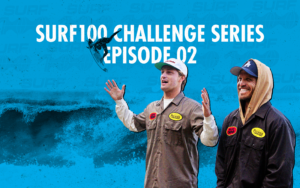









Comments
Comments are a Stab Premium feature. Gotta join to talk shop.
Already a member? Sign In
Want to join? Sign Up